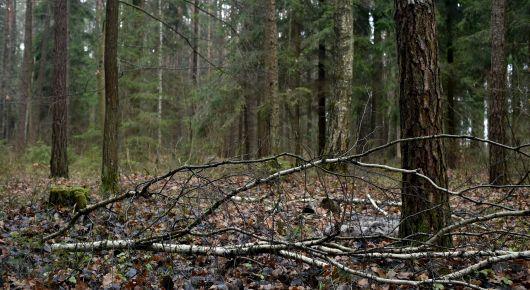Action plan combats dieback of pine forests in Belarus and Ukraine

Belarus and Ukraine have high forest covers that provide a fundamental contribution to the wellbeing of rural populations and the national economy. To protect these forests for future generations, a new FAO project, launched today with a virtual inception workshop, will help increase the resilience of forest ecosystems against unfavourable biotic and abiotic factors, droughts, and combat dieback of pine forests.
Both Belarus and Ukraine have great potential for forestry development, yet, there are new limiting factors related to the global environmental processes, resulting in a highly increased proportion of dying forest stands and damage to trees by pests and diseases.
Due to the limited institutional capacities in forest health, the governments of the two neighbouring countries requested technical assistance from FAO in implementing an emergency action plan for combating dieback of pine forests and developing a long-term coordinated solution to reduce and control the periodic incidence of bark beetle infestations.
“Quality information about the changes and current health status of pine forest ecosystems is required to develop tailored actions for combating dieback of pine forests,” said Shiroma Sathyapala, FAO forest health officer in Rome. “FAO will support Belarus and Ukraine to improve national surveillance and monitoring systems for the development of functional early warning systems, and in developing national contingency plans for forest pest outbreaks.”
Lack of appropriate silvicultural measures for pine forests in past decades increased competition between individual trees for light, nutrition, and water. These factors have led to pine forests with a high number of trees per hectare and underdeveloped tree crowns with limited vitality.
“Severe droughts combined with poor silviculture practices cause stress to trees and, as a consequence, they become susceptible to bark beetle attacks,” said Norbert Winkler-Ráthonyi, FAO’s forestry officer for Europe and Central Asia.
"The preliminary findings in Belarus and Ukraine suggested that reduced vitality of pine forests is the primary cause for the susceptibility of forests to bark beetle outbreaks and the subsequent dieback," he added.
The project goals are in line with Ukraine’s national priorities related to the environment and management of natural resources, including forestry and fisheries, as well as Belarus' national priority for the sustainable use of natural resources including forestry, climate change adaptation, and mitigation. The project activities relate to broader global efforts as they contribute to achieving Sustainable Development Goals and improvements in the quality of life, particularly in rural areas.
The United Nations has declared 2020 as the International Year of Plant Health, extended to the first half of 2021, providing an opportunity to raise global awareness on how vital the role of plant health is in ending hunger, reducing poverty, protecting the environment, and boosting economic development.
29 January 2021, Kyiv, Ukraine
